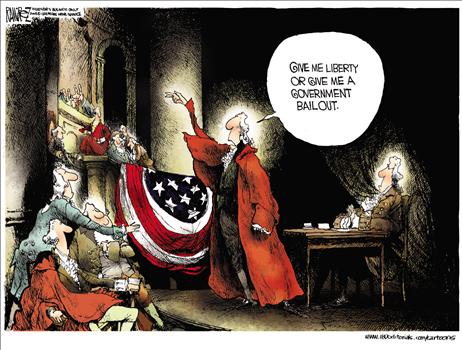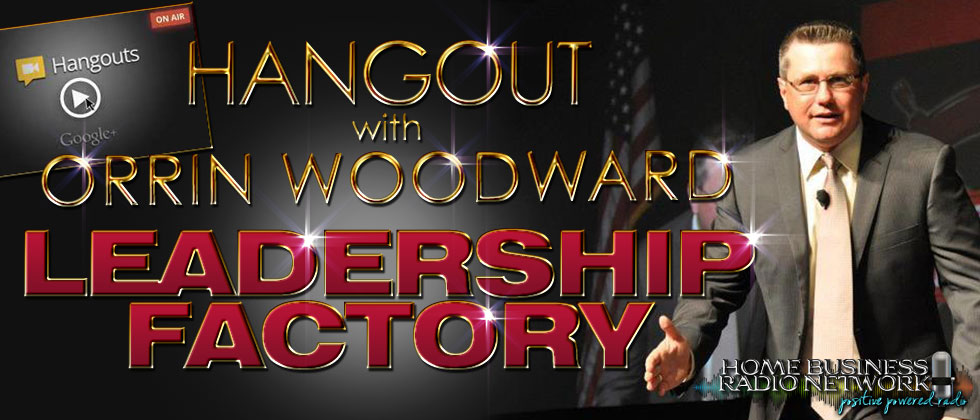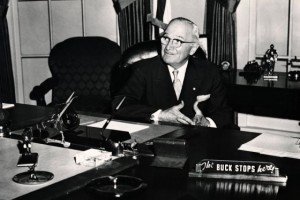
Modern Interpretation of Patrick Henry
Patrick Henry, during the Revolutionary War, was considered one of the Top 5 leaders in Colonial America. Indeed, he was several times the governor of the largest State (Virginia), the most powerful speaker in any assembly, and a man of unquestioned character and rectitude. His love of freedom made him stand at the front of the line when England threatened the liberty of the states. His most famous line, “Give me liberty or give me death,” has fanned the flames of freedom around the world.
Interestingly, something changed after America’s victory over England. First, Patrick Henry refused to go to Philadelphia to participate in the Constitutional Convention saying, “He smelled a rat.” Second, Henry quickly joined forces with George Mason, Richard Henry Lee, George Clinton, and others in resisting the new proposed government. Although Patrick Henry felt changes should be made to the Articles of Confederation, he felt a total rewrite was unnecessary and a dangerous innovation.
In consequence, the same man, who several decades before, was the brightest star at the birth of the revolution for supporting liberty against oppressive taxation and arbitrary government force, now was publicly castigated, belittled, and shoved aside, for daring to speak out on the dangers he saw in the new government for oppressive taxation and arbitrary government force. In other words, when Patrick Henry spoke of liberty against English oppression, his support was heartily supported, but when he spoke of the same dangers in the new proposed government, he was severely criticized.
Patrick Henry understood human nature as well as any of the founders. In truth, his objections were valid and America today is suffering from all of the concerns, and more, that Henry expressed in the Virginia Ratification debates. The price of liberty is eternal vigilance and Patrick Henry defended liberty even at the price of his esteemed reputation, career advancement, and lasting legacy. Truth is truth and when one is afraid to speak truth, when so much is at stake, one becomes a coward. Patrick Henry was no coward.
Unfortunately, Henry, although seeing the problem with the current proposal, did not suggest a workable alternative. In politics, one of the oldest dictums is, “You can’t beat something with nothing,” and even Henry’s leadership could not overcome this law. Nonetheless, he fought to add a Bill of Rights (thankfully for America he won here), stronger states checks on federal government to resist consolidation (centralization), and stronger checks on the taxing power because he felt the power to tax was the power to control.
Oliver DeMille and I share in LeaderShift a proposal to address each of these concerns and more. Knowing that we cannot beat something with nothing, we proposed a workable alternative to the runaway inflation, debts, and federal consolidation. For instance, placing real limits on the power to tax, forbidding government to print fiat money, and decentralizing leadership away from Washington to the state and local levels. Instead of endless complaining about what’s wrong, perhaps it’s time to start doing something that is right. This is the LeaderShift! I have attached just a portion of one speech he made at the Virginia Ratification Debates that Patrick Henry gave in defense of liberty over tyranny.
Sincerely,
Orrin Woodward: LIFE Leadership
When I asked that question, I thought the meaning of my interrogation was obvious. The fate of this question and of America may depend on this. Have they said, We, the states? Have they made a proposal of a compact between states? If they had, this would be a confederation. It is otherwise most clearly a consolidated government.
The question turns, sir, on that poor little thing the expression, We, the people, instead of the states, of America. I need not take much pains to show that the principles of this system are extremely pernicious, impolitic, and dangerous. Is this a monarchy, like England a compact between prince and people, with checks on the former to secure the liberty of the latter? Is this a confederacy, like Holland an association of a number of independent states, each of which retains its individual sovereignty? It is not a democracy, wherein the people retain all their rights securely.
Had these principles been adhered to, we should not have been brought to this alarming transition, from a confederacy to a consolidated government. We have no detail of these great considerations, which, in my opinion, ought to have abounded before we should recur to a government of this kind. Here is a resolution as radical as that which separated us from Great Britain. It is radical in this transition; our rights and privileges are endangered, and the sovereignty of the states will be relinquished: and cannot we plainly see that this is actually the case?
The rights of conscience, trial by jury, liberty of the press, all your immunities and franchises, all pretensions to human rights and privileges, are rendered insecure, if not lost, by this change, so loudly talked of by some, and inconsiderately by others. Is this tame relinquishment of rights worthy of freemen? Is it worthy of that manly fortitude that ought to characterize republicans?
It is said eight states have adopted this plan. I declare that if twelve states and a half had adopted it, I would, with manly firmness, and in spite of an erring world, reject it. You are not to inquire how your trade may be increased, nor how you are to become a great and powerful people, but how your liberties can be secured; for liberty ought to be the direct end of your government.
Having premised these things, I shall, with the aid of my judgment and information, which, I confess, are not extensive, go into the discussion of this system more minutely.
Is it necessary for your liberty that you should abandon those great rights by the adoption of this system? Is the relinquishment of the trial by jury and the liberty of the press necessary for your liberty? Will the abandonment of your most sacred rights tend to the security of your liberty? Liberty, the greatest of all earthly blessings give us that precious jewel, and you may take every thing else!
But I am fearful I have lived long enough to become an old-fashioned fellow. Perhaps an invincible attachment to the dearest rights of man may, in these refined, enlightened days, be deemed old-fashioned; if so, I am contented to be so. I say, the time has been when every pulse of my heart beat for American liberty, and which, I believe, had a counterpart in the breast of every true American; but suspicions have gone forth suspicions of my integrity publicly reported that my professions are not real. Twenty-three years ago was I supposed a traitor to my country? I was then said to be the bane of sedition, because I supported the rights of my country.
I may be thought suspicious when I say our privileges and rights are in danger. But, sir, a number of the people of this country are weak enough to think these things are too true. I am happy to find that the gentleman on the other side declares they are groundless. But, sir, suspicion is a virtue as long as its object is the preservation of the public good, and as long as it stays within proper bounds: should it fall on me, I am contented: conscious rectitude is a powerful consolation. I trust there are many who think my professions for the public good to be real. Let your suspicion look to both sides. There are many on the other side, who possibly may have been persuaded to the necessity of these measures, which I conceive to be dangerous to your liberty.
Guard with jealous attention the public liberty. Suspect every one who approaches that jewel. Unfortunately, nothing will preserve it but downright force. Whenever you give up that force, you are inevitably ruined.











